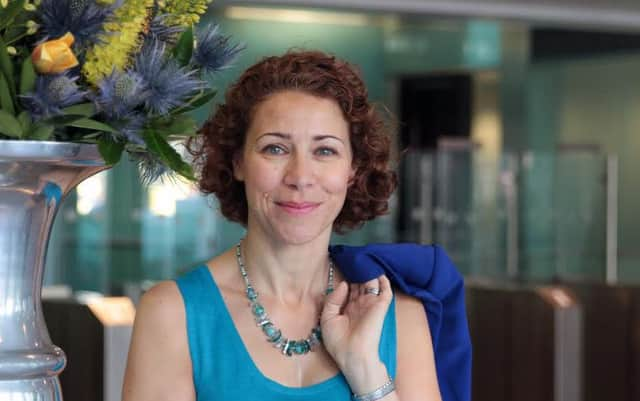‘Too many boards are stuck in the Victorian era’


Ms Romanovitch also revealed that Grant Thornton is considering establishing incubator hubs for small businesses, as part of a strategy to help the firm grow.
She made the comments during a trip to Leeds, where she met Andy Wood, the firm’s practice leader in Leeds, and Paul Houghton, who leads Grant Thornton’s Sheffield office.
Advertisement
Hide AdAdvertisement
Hide AdShe said: “The boardroom of today doesn’t look a lot different, apart from the technology, from the boardroom of Victorian England.
“If you go into so many different boardrooms, you go back to Dickens and Bleak House, and how things operated then. Then you look at the structure of boardrooms and meetings today, (they are) sitting around a table with formal agendas.”
She fears many firms are not using “all this wonderful technology that allows us to do business in a very different way”.
“As a country, I find it very funny that we’re always talking about this productivity puzzle, and productivity gap, and yet somehow we still define ourselves by working in boxes, like when you’re running factory shifts and you need to be physically there. So we haven’t broken out of the paradigm of the industrial era.”
Advertisement
Hide AdAdvertisement
Hide AdDuring the trip, Ms Romanovitch also urged the region’s firms to have a clear vision of what they stand for.
She added: “Desmond Tutu (the anti-apartheid campaigner) had said, ‘When we were fighting against apartheid it was actually quite easy, we knew what we were fighting against.
“Then apartheid went, and we had to work out what we were fighting for.’
“Working out what you stand for (is important), and particularly in the context of the global economy, and a world where in China by 2025 there will be another 200 cities the size of Birmingham. For Yorkshire and Leeds there is a massive opportunity, to say ‘What do we stand for in that global economy?’ The future is going to be about cities and not about countries.”
Advertisement
Hide AdAdvertisement
Hide AdIn particular, she highlighted the large numbers of people migrating to Chinese cities who have a strong desire for foreign goods.
She is also sourcing business ideas from Grant Thornton’s staff to create new opportunities.
Ms Romanovitch said: “An example that came from our people was, ‘What if we created an incubator to support growth businesses?’
“Then you can say, ‘How could we do that?’
“By asking those questions...you then get down to individuals who are able to choose actions that will deliver our plan and they feel part of it.
Advertisement
Hide AdAdvertisement
Hide Ad“We’re open to all the ideas that are coming out from our people at the moment. That’s where the purpose comes in – we want to be a vibrant firm for growth, we want to make a difference and we need to think of different ways in which we can do it.”
Grant Thornton employs 200 people in Leeds and 70 in Sheffield. Mr Wood said the firm hoped to almost double the size of its operation in Leeds by 2020.
He said; “The ambition is there and the opportunity is there.”
Sacha Romanovitch says she aims to shape a vibrant economy in which all can flourish.
Advertisement
Hide AdAdvertisement
Hide AdHer vision is three-fold. She believes the UK must ensure it is an easy and attractive place to do business; while trust and integrity is needed in financial markets.
There also needs to be an environment where businesses and people can thrive.
She has supported the introduction of a shared enterprise scheme at the firm.
In May, 99 per cent of Grant Thornton partners backed a proposal to issue a consultation on the implementation of shared enterprise, a concept similar to the one adopted by retailer John Lewis.
Advertisement
Hide AdAdvertisement
Hide AdShe said: “My ambition is for all of our people to have a stake in Grant Thornton becoming the go-to firm for growth.
“The only way we can fully harness the potential of all 4,500 of our people is through shared enterprise – a sense that we are all in this together sharing our thinking and ideas, sharing the responsibility to drive the business forward and sharing in the resulting rewards.”